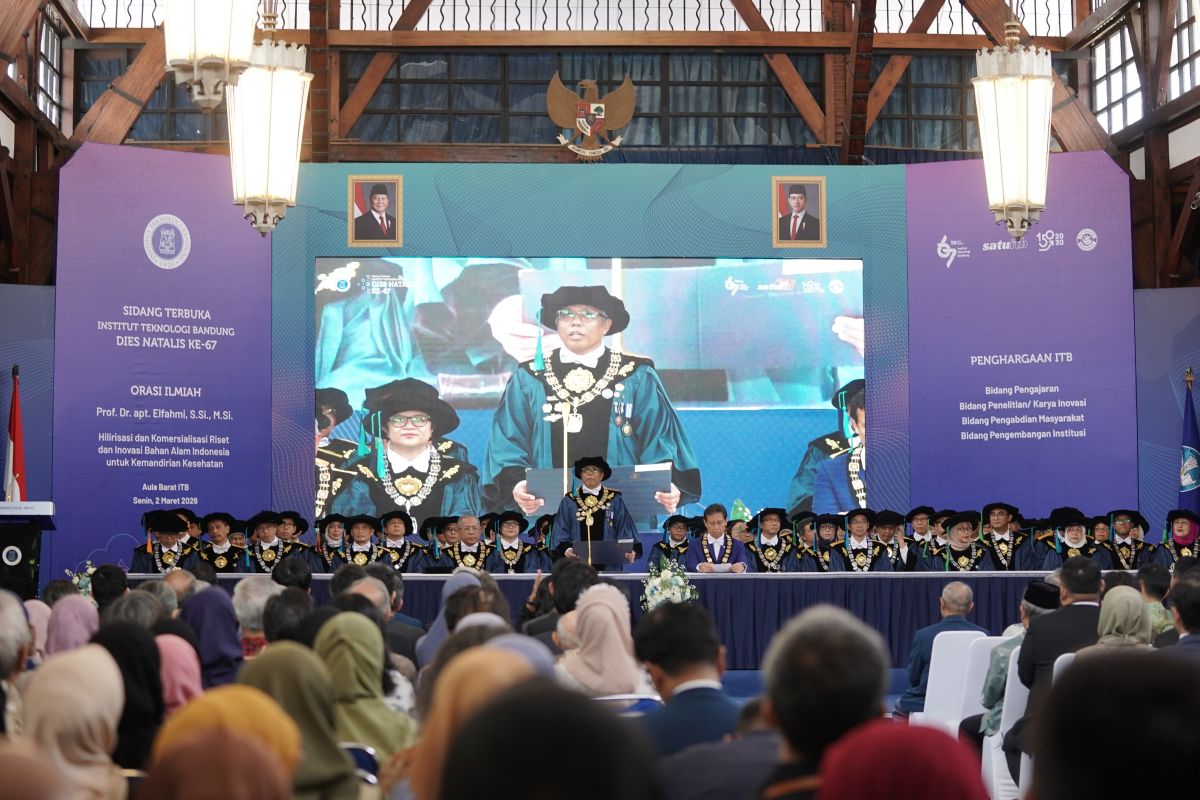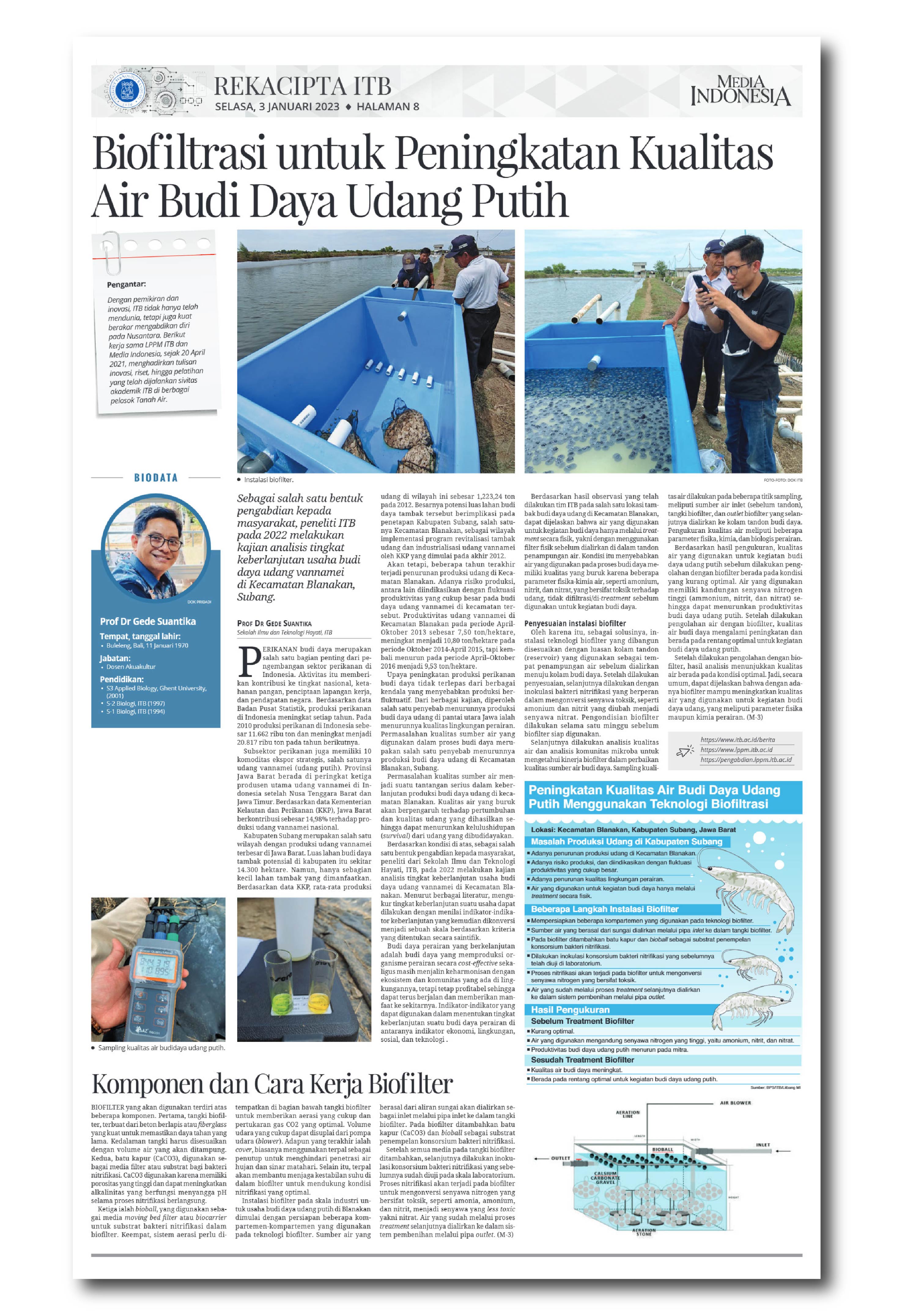ITB Students Develop Eco-Friendly Biofilter: A Sanitation Solution for Cikahuripan Village
By M. Naufal Hafizh, S.S.
Editor M. Naufal Hafizh, S.S.

JATINANGOR, itb.ac.id - Students from Institut Teknologi Bandung (ITB) carried out a community service project involving the construction of an Eco-Friendly Biofilter (bioraling) in Cikahuripan Village, Cimanggung District, Sumedang Regency. This agenda which was held from May to July 2024 aimed to improve access to safe sanitation in the village.
The community service activities included creating bacterial growth media, building appropriate technology for communal-scale domestic wastewater treatment known as bioraling, and engaging in community activities. The beneficiaries of this project were the residents of Lebak Kaso Hamlet, Cikahuripan Village.
Access to proper sanitation is a vital foundation for public health. Sanitation serves to maintain cleanliness in an area to prevent contamination from disease sources.
According to the Ministry of Health, an estimated 5% of households in Indonesia still practice Open Defecation (OD). This is commonly found in rural areas with low economic conditions. Furthermore, much of the sewage is not safely managed at its source. A common issue is septic tanks leaking into the soil, which can contaminate groundwater frequently used for daily needs. Given the limited access in rural areas, there is a need for appropriate sanitation technology to process sewage without harming the environment.

The Eco-Friendly Biofilter (bioraling) is an affordable yet high-quality alternative technology for effective sanitation. This biofilter utilizes bacterial growth media made from used bottled drinking water (AMDK) packaging. The bioraling design consists of three compartments. The first compartment separates solids and carries out anaerobic biodegradation of sediment. The second and third compartments contain filter media for further solid separation and anaerobic processes.

The project began with a transect walk to identify areas in the village that are vulnerable to pollution. They also raise awareness about the dangers of contamination due to poor sanitation conditions. This was followed by the construction of the bioraling media.
"For the bioraling media, we used discarded AMDK bottles as the main material. The use of these bottles as biofilter media not only contributes to sanitation but also reduces waste from discarded AMDK bottles that would otherwise end up in landfills. The amount of used AMDK bottles required was around 100 kilograms. About 30 women and children from Lebak Kaso Hamlet, Cikahuripan Village, participated in this activity," said Raihan Zhafar, a member of the community service team.
With the construction of bioraling, it is hoped that the residents of Cikahuripan Village will live in a cleaner environment. Additionally, this project demonstrates that simple, low-cost technology can provide effective solutions to sanitation issues in rural areas. The success of this project is expected to inspire other communities to participate in environmental preservation and improve their quality of life.
Reporter: Artanti Mirta Kusuma (Environmental Infrastructure Engineering, 2021)
Translator: Anggi Nurdiani (Management, 2024)
Editor: Ayesha Lativa Mafaza (Postharvest Technology, 2021)

.jpeg)
.jpg)
.jpg)




